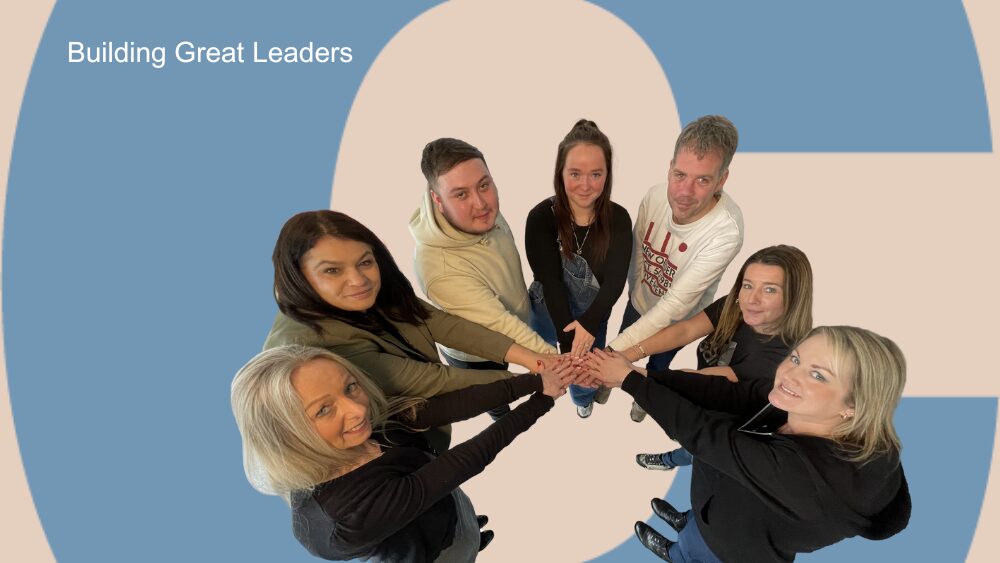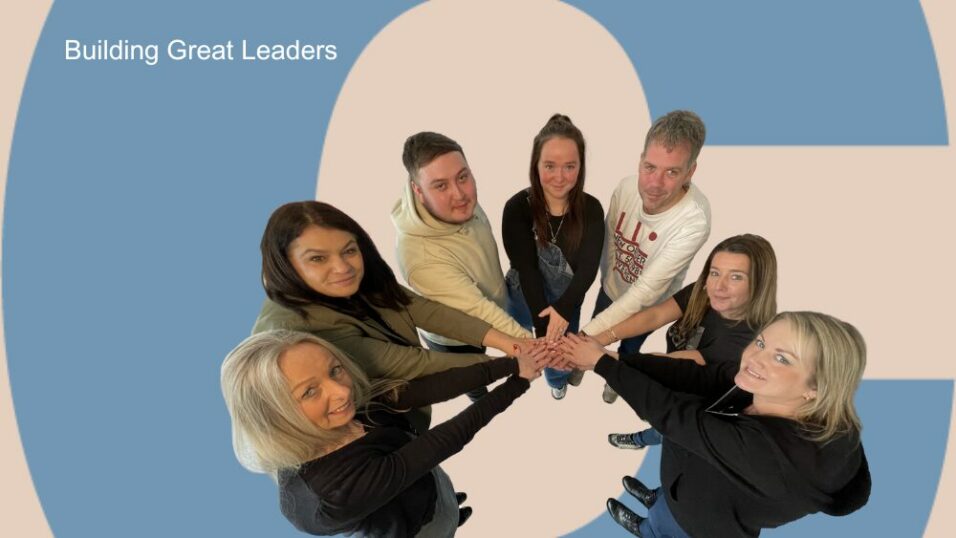



Steering a People First Culture
By Chubb | 22nd July 2024
Over the last couple of years, Chubb has overhauled its people strategy with the ambition of becoming the number one people-first public company and number one for business performance in the fire and security industry.
With its ambitious plans on track, we spoke to the steering force behind Chubb in the UK & Ireland, our Managing Director, David Dunnagan about the evolution of Chubb’s people strategy and how far the business has come on its journey.
Can you describe your personal journey at Chubb and how the culture of the business has changed since it was taken over by APi in 2022?
Chubb has a fantastic history. It’s a 205-year brand synonymous with innovation in its early years that has endured the passing of time.
I joined Chubb in the summer of 1993. At that time, the company was known as Chubb Alarms. Back then, apprenticeships were very different from what we have today: sixteen weeks a year working at college and the rest of the year shadowing engineers out in the field.
My career progressed from engineering to business development and sales. 2010 was a big year for me, as it was when I took on my first leadership role as Sales Manager. Following this, I was promoted to Commercial Director in 2013. Over the next nearly six years, my role was to drive the fire and security solutions side of the business forward before I was appointed to Managing Director of Chubb Systems Limited in 2018. I’ve been with Chubb now for over three decades!
During this time, I’ve seen many things – new innovations in the industry and people coming and going. However, one of the biggest and constant challenges, businesses face is leading change.
Businesses undergo change every 18-24 months, and we are no different. Thankfully, my long service means I have a solid platform to manage people’s expectations and concerns about new changes. I’ve learnt how to steer a stable path forward while keeping people focused and motivated.
One of my biggest motivators to drive change is to change mindsets. I’ve seen people being afraid of change too often in my work and personal life. To move forward in everything we do, we need to change this mindset. We need to challenge those who say, “We don’t do it that way” or “We’ve tried that.” Assertive, concise and timely communication is key. As long as we communicate the benefits of what we want to achieve, we can take people on the journey with us.
Chubb’s acquisition by the APi Group in 2022 marked a significant period of change for the business. Their focus on people and the need to ensure that they’re developing as an organisation that’s a global force in their markets of safety and specialty services have helped shape our people-first culture at Chubb.
How has the people strategy evolved over that time? What needed to be done to create a people-first strategy, and what does this mean in practice?
2023 marked a significant milestone in the evolution of our people strategy. We agreed on a plan that would be based on three elements: attract, develop, and retain.
We have a workforce of around 13,000 globally, 2,300 in the UK and Ireland, not including contractors. These roles range from engineers installing and servicing systems across the country to sales executives, project managers, business support, and functional teams. Our approach had to be people-led to cater to the diverse needs of our workforce.
Last year was the first year that we ran a full talent deep dive into the organisation. Typically, in the past, we looked at the top two tiers of the organisation, then rolled it out into Europe and then globally. But last year, we took the opportunity to dive right down into engineering. So, everyone within our organisation was evaluated through the deep-dive process.
There were two reasons for doing this: firstly, to understand what talent, skills, and capabilities we have within our organisation, and secondly to identify the high potential employees and understand how to best support and develop them.
With this valuable insight, we could then create a training needs analysis – and move people around into more suitable roles.
Safety, coupled with our people and our culture, is the foundation of our strategy as a business. We know that we will only achieve our business goals if we put our people first, make Chubb a great place to work, and collaborate with our teammates.
Why was this so important, and how does it fit in with the philosophy of building great leaders?
At Chubb, we believe that everyone is a leader, that everyone deserves a great leader, and leaders achieve great results. That’s why our purpose is Building Great Leaders – investing in each and every person to develop as leaders and make the world a safer place.
This year, we have introduced in-person Leader Labs – these are one-day workshops delivered in person to complement our existing e-learning programmes. At the heart of the Leader Labs is the belief that everyone can be a leader in their personal and professional life.
This initiative is not about titles or roles; it’s about fostering self-awareness, reflection, and the ability to make impactful changes in our lives and habits. Leadership is about the choices we make and the actions we take. Each Leader Lab cohort will have a good mix of teammates from different levels within the organisation.
What were the challenges associated with this? How were you able to overcome these?
Organisations often fail from a people’s point of view because they do not create a very clear, focused, simple plan that is meaningful to both the business and the people. Even with a plan in place, you must act on it. If you’ve got a plan, you must regularly revisit it, be accountable for it, and truly own the plan.
Buy-in from the senior leadership team is crucial if you’re going to introduce change. So, too, is strong, consistent communication. You can’t instigate change on your own. In my role, it’s essential that I keep lines of communication open with all areas of the business. Being open and transparent is the best way to get teammates to embrace change.
How else does Chubb invest in its employees, for example through training and development?
Following our deep dive, we recognised that we need to focus on three areas: sales, technical, and management capability.
With salespeople, you often source from the same talent pool, but the reality is we always need new sales to make the organisation sustainable. So, we introduced the Sales Associate Programme, which is focused on new early career entrants into sales, who are often graduates. We then train them how we want them to work and guide them through an 18-month programme, educating them about lead generation, customer segments and sectors we want to operate in.
We also launched our Sales Edge Programme to increase our management and leadership capability. We draw heavily on our apprenticeship levy and training budget to build great leaders, integrating Franklin Covey’s seven habits of highly effective people. We also launched the Leadership and Management Edge programmes, to capture leaders for all departments.
The third initiative we introduced was an accelerated technical development programme, which we call ADP. We recognised a huge skills shortage in fire and security, so we created a fast-track apprenticeship programme, which is relatively unheard of – inviting people mid-career or who have previously pursued a different career. It’s an 18-week development programme, which aligns with our apprenticeship programme. With this programme, we can recruit on behaviours, not competency, meaning we’ve been able to bring some very diverse thinking into the business, from an engineering perspective.
What have been the results of this? Are there any tangible metrics here, such as engagement surveys, retention, or absence stats?
Early results show our attrition rate has fallen by 5.6 per cent from 2022 to now. On our last employee engagement survey, we saw a few improvement points on the engagement score, with a 72 per cent participation rate; that’s 1649 responses in the UK and Ireland and an 8 per cent increase. And more than 3,500 comments, that’s 50 per cent more than on our last survey!
Where are you currently on the journey to becoming the number one people-first organisation in the fire and security industry? Are there any plans in the pipeline?
Although we’re fairly early on in our journey, we’ve already come a long way, particularly in the last year.
That said, there are always areas we seek to improve. The same employee engagement survey highlighted some key areas we need to improve as a business. These included improving engagement to offer people a ‘sense of belonging’, improving how some of our supervisors nurture teammates with career growth, and offering consistent recognition and praise for work well done.
In terms of employee recognition, in April, we celebrated the achievements of 55 exceptional engineering, sales and business support graduates at an awards ceremony – a well-deserved celebration of the past year’s learning and development. During our history we’ve seen more than 650 apprentices graduate through our scheme, which is something we are very proud of.
In June, we also hosted our Superstars event for the fourth year running to celebrate the hard work, dedication and achievements of some of our most outstanding employees. This year’s event was held at the historic Cameron House Hotel and Spa in Glasgow and saw us present 43 awards to members of sales, service engineering, general management and operational roles and individuals who have all made exceptional contributions to the organisation.
Shining the spotlight on our exceptional employees at events like these is a perfect example of our people-first culture and the strides we’re making to be the number one people-first public company and number one for business performance in the fire and security industry.
Disclaimer:
© 2024 Chubb Fire and Security. All rights reserved.
The information provided in this blog is for general informational purposes only and does not constitute professional advice. Chubb Fire and Security is not responsible for any actions taken based on the information provided. This blog is not an advertisement or advice document. You are responsible for complying with any legal or regulatory requirements that apply to you.
Chubb Fire and Security reserves the right to modify the content and offers mentioned in this blog without prior notice.
 Global network
Global network
